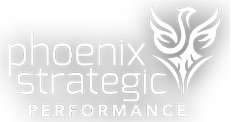Organizational development, or OD for short, refers to the process of improving an organization's overall effectiveness and efficiency through planned interventions. It is a long-term effort aimed at enhancing an organization's capacity to achieve its goals and objectives by fostering a healthy and productive work environment. OD is a complex field that involves various disciplines, including psychology, sociology, economics, and management. It is rooted in the belief that an organization's success depends on the performance of its people, systems, and processes. Therefore, OD seeks to improve these elements to enhance an organization's overall effectiveness.
The process of OD involves a range of activities, including data collection, analysis, and feedback. It requires a deep understanding of an organization's culture, values, and goals. The following are five of the critical components of organizational development:
-
Change Management:
OD is a process of change that can be challenging for organizations. Change management is a critical component of OD that helps organizations effectively navigate through the process of change. It involves identifying the need for change and assessing the risks and benefits associated with it. Developing a plan for change requires a detailed analysis of the organization's current state, future goals, and available resources. Once a change plan has been developed, it's essential to implement it in a way that minimizes disruption and maximizes the likelihood of success. This may involve training employees, communicating effectively, and providing ongoing support throughout the change process. By effectively managing change, organizations can achieve their goals and improve their overall effectiveness. -
Leadership Development:
Leaders play a critical role in shaping an organization's culture, values, and goals. Therefore, leadership development is a vital component of OD. Leadership development is a vital component of organizational development, as it involves identifying and cultivating leaders who can effectively communicate the organization's vision, inspire employees, and drive performance. The process of leadership development includes assessing current leaders' skills and identifying potential leaders who possess the qualities necessary to lead the organization towards success. Once identified, potential leaders are provided with training and development opportunities to enhance their leadership skills and competencies. This includes coaching, mentoring, and leadership workshops, which focus on developing critical skills such as effective communication, conflict resolution, decision-making, and strategic planning. By investing in leadership development, organizations can create a culture of strong leadership, which is essential for achieving long-term success and maintaining a competitive edge in today's rapidly changing business environment. -
Team Building:
Teams are the building blocks of organizations. Effective team building involves creating a collaborative work environment where team members can work together to achieve common goals. Teams are the backbone of any successful organization. Effective team building is crucial for creating a cohesive and collaborative work environment where team members can work together towards a common goal. Building an effective team requires more than just selecting the right people; it involves creating a work environment that fosters trust, open communication, and mutual respect. Effective team building involves defining roles and responsibilities, setting clear goals, and establishing processes for communication and decision-making. It also involves creating a culture of accountability, where team members are responsible for their actions and are held accountable for their performance. -
Process Improvement:
Processes are the backbone of every successful organization. They are the means by which organizations achieve their goals, and OD involves enhancing these processes to ensure they are more efficient, effective, and aligned with the organization's objectives. This requires a deep understanding of the organization's processes, including how they work and how they can be improved to achieve optimal results. OD consultants use various tools and techniques to identify bottlenecks, inefficiencies, and areas for improvement, and then develop and implement strategies to streamline processes, reduce waste, and increase productivity. This may involve re-engineering processes, introducing new technology, or redesigning workflows to ensure that they are aligned with the organization's goals and objectives. By improving processes, organizations can enhance their overall effectiveness and efficiency, reduce costs, and achieve their goals in a more efficient and effective manner. -
Performance Management:
Performance management is a crucial component of organizational development, as it enables organizations to ensure that their employees are meeting the desired performance standards. It involves setting clear performance expectations, which are aligned with the organization's goals and objectives. This requires a deep understanding of the organization's culture and the skills and competencies required to achieve success. Once performance expectations have been established, organizations need to monitor performance to ensure that employees are meeting these expectations. This involves collecting data on employee performance, such as sales figures, productivity levels, and customer satisfaction ratings. This data is then analyzed to identify any areas where performance is falling short of expectations.
OD interventions are typically designed to address specific organizational challenges, such as poor communication, low morale, low productivity, or a lack of innovation. OD consultants use various tools and techniques to diagnose the problem, develop a plan, and implement interventions to improve the organization's effectiveness.
Organizational development is a process of improving an organization's overall effectiveness and efficiency through planned interventions. It involves various activities, including change management, leadership development, team building, process improvement, and performance management. OD interventions are designed to address specific organizational challenges and are typically implemented over a long period. By investing in OD, organizations can improve their performance, enhance their competitive advantage, and achieve long-term success.
What critical organizational issues should you consider as you optimize the process of managing human capital? Download our Human Capital Checklist, which highlights the critical issues for your organization to regularly evaluate. You can also schedule a complimentary assessment with a member of our team.





